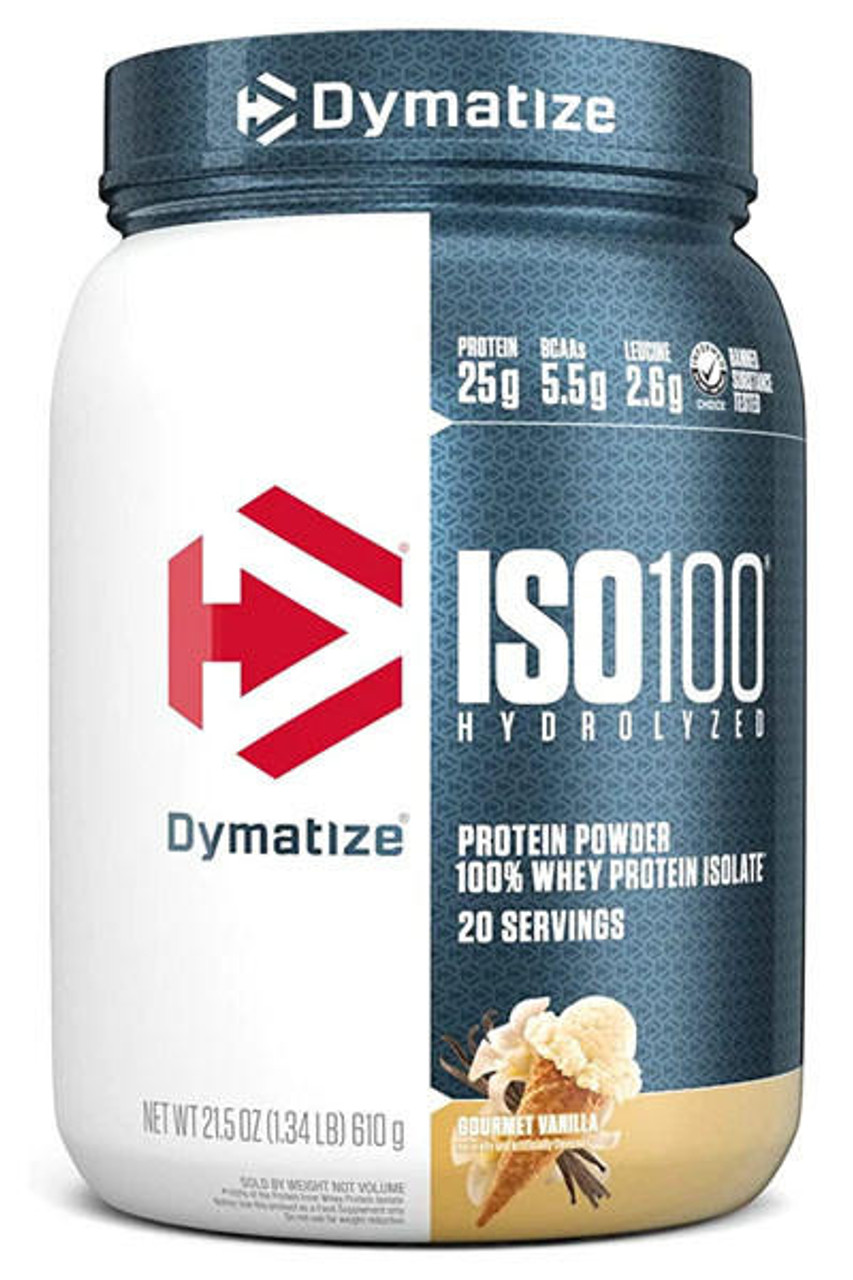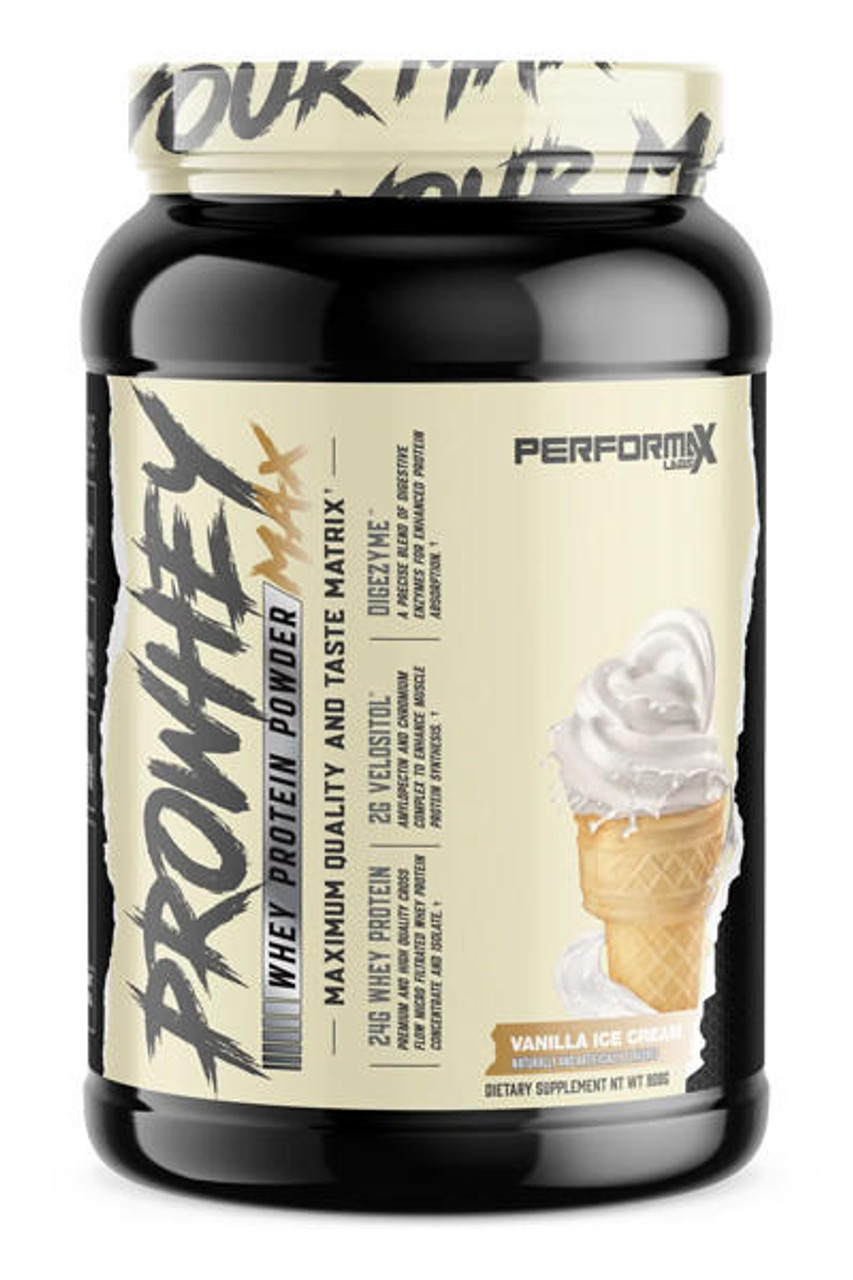The Complete Guide to Whey Protein Supplements' Side Effects
Posted by Leonard Shemtob on Dec 18, 2023
The Complete Guide to Whey Protein Supplements' Side Effects
As more fitness enthusiasts turn to these popular protein sources to support their training goals, it becomes crucial to understand the potential drawbacks. In this article, we will explore the world of whey protein, shedding light on its side effects so you can make informed choices for your health and fitness journey. Plus, we'll throw in some helpful tips to minimize the negatives and maximize your gains.
So, before you chug another shaker full of whey, crack open this guide and get the lowdown. Let's dive into the essential information you need to know about the possible downsides of incorporating whey protein supplements into your routine.
Short Summary
Understanding Whey Protein Basics: Explore the fundamentals of whey protein supplements and why they have become a popular choice for fitness enthusiasts.
Common Side Effects Unveiled: Identify and discuss prevalent side effects of whey protein supplements, providing insights into their nature and impact.
Discover Low-Side-Effect Options: Find the best whey protein supplements with minimal side effects, providing a safe option for your fitness journey.
Start Your Journey: Begin your fitness journey with our top recommended whey protein supplement, Iso 100 by Dymatize Nutrition, and kickstart a healthier lifestyle.
Comprehensive Guide to Whey Protein: Dive into our all-inclusive article [Whey Protein: What Is It Made Of, Types, Benefits, Side Effects and More.] covering everything about whey protein, from its benefits to side effects, types, and more, aiding you in making informed choices.
What is Whey Protein?
Whey protein is a premium protein derived from cows' milk during the cheese-making process. It consists of essential amino acids that the body needs but cannot produce on its own. Whey is separated from the other ingredients of milk, such as fat and casein, to create a protein-rich supplement.
Benefits of Whey Protein
Muscle Building and Repair: Whey protein is rich in amino acids, especially leucine, which plays a crucial role in promoting muscle protein synthesis. This makes it an excellent choice for those looking to build and repair muscles.
Weight Management: Consuming whey protein can contribute to a feeling of fullness, helping to control appetite and support weight management goals.
Antioxidant Properties: Whey protein contains antioxidants, such as glutathione, that help protect the body from oxidative stress and support overall health.
Immune System Support: The immunoglobulins in whey protein may enhance the immune system, providing added defense against infections and illnesses.
Quick and Convenient Source: Whey protein supplements are convenient and easy to incorporate into various meals and snacks, making it a practical choice for those with busy lifestyles.
Types of Whey Protein
Whey Protein Concentrate (WPC): Contains a lower percentage of protein but retains more beneficial nutrients found in whey, including fats and carbohydrates.
Whey Protein Isolate (WPI): Processed to remove most carbohydrates and fats, resulting in a protein-rich content. It's a good option for those looking to increase protein intake without additional calories.
Whey Protein Hydrolysate (WPH): Predigested or partially hydrolyzed, making it easier for the body to absorb. This form may be suitable for individuals with lactose intolerance.
Whey Protein Side Effects
Whey protein is a popular supplement among athletes and fitness enthusiasts. Despite numerous health benefits attributed to it, there's also some controversy surrounding its safety.
In the upcoming sections, we'll conduct a thorough, evidence-based examination of the safety and potential side effects associated with whey protein.
Can Whey Protein Cause Digestive Issues?
For some individuals, incorporating whey protein supplementation into their diet might lead to digestive concerns. Here are a few reasons why this may occur:
Lactose Sensitivity: Whey protein contains lactose, a sugar found in milk. Those with lactose intolerance might encounter digestive discomfort, such as bloating, gas, or stomach cramps.
Individual Sensitivity: Some people may be more sensitive to certain proteins or compounds in whey, leading to digestive symptoms. This sensitivity varies from person to person.
Overconsumption: Consuming excessive amounts of whey protein in a short period might overwhelm the digestive system, causing discomfort. Moderation is key to avoiding potential issues.
Tips to Minimize Digestive Discomfort:
Choose Whey Isolate: Whey protein isolate, with lower lactose content, might be a suitable option for those with lactose sensitivity.
Gradual Introduction: Start with smaller amounts of whey protein and gradually increase to assess your body's tolerance.
Stay Hydrated: Make sure you drink an adequate amount of water when consuming whey protein, as dehydration can exacerbate digestive issues.
Balanced Diet: Incorporate whey protein as part of a well-balanced diet, ensuring you're not relying solely on supplements.
Allergic reactions to whey protein can occur in certain individuals. Whey protein derived from cow's milk poses a potential risk for individuals with a cow's milk allergy. It's important to note that cow's milk allergy is more prevalent in children, affecting 2-3% of those under 3 years old while being less common in adults. Fortunately, approximately 80% of individuals outgrow this allergy by the age of 16.
Cow's Milk Allergy Symptoms
Common symptoms of a cow's milk allergy include hives, rashes, facial swelling, throat and tongue swelling, and a runny or stuffy nose. In severe cases, it can trigger anaphylaxis, a life-threatening allergic reaction marked by pronounced swelling in the tongue, lips, or throat and difficulty breathing. Immediate medical attention is crucial if a severe allergic reaction is suspected.
Alternatives for Individuals with Cow's Milk Allergy
For those with a cow's milk allergy, opting for non-dairy protein powders such as soy, pea, egg, rice, or hemp protein is advisable. Careful label reading is essential to ensure product safety. Additionally, increasing protein intake through protein-rich foods is an alternative to supplements.
Whey Protein: Constipation and Nutritional deficiencies
For some people, an increase in protein intake, including whey protein, may be associated with constipation. This can be attributed to factors such as insufficient water intake or inadequate fiber consumption.
Tips for Avoiding Constipation:
- Ensure an ample daily water intake to support digestion.
- Incorporate fiber-rich foods such as fruits, vegetables, and whole grains into your diet.
- Monitor protein intake and consider adjusting the amount to find a level that suits your digestive system.
Nutritional Deficiencies:
While whey proteins are a major source of essential amino acids, relying solely on them for all nutritional needs may lead to imbalances in other nutrients. It's critical to maintain a well-rounded diet that includes a variety of food sources.
Balancing Your Nutrient Intake:
- Use whey protein as a supplement, not a primary source of nutrition.
- Incorporate a diverse range of whole foods to ensure a broad spectrum of essential nutrients.
- Consider consulting with a nutritionist to make a balanced and personalized dietary plan.
Digestive responses to whey protein can vary among individuals. Pay attention to your body's signals and make adjustments accordingly.
If you experience persistent constipation or concerns about nutritional deficiencies, consult a healthcare specialist or a registered dietitian. They can provide tailored guidance that aligns with your individual needs and health condition.
Is Whey Protein Harmful to Your Kidneys?
Some evidence suggests that a high-protein diet may increase the workload on the kidneys as they filter the blood. Over time, this increased workload could potentially lead to kidney damage or exacerbate existing kidney conditions.
However, the available evidence provides a mixed perspective. Some research suggests that the increased filtering activity may not put a significant risk to kidney health, particularly for individuals without pre-existing health conditions.
On the flip side, there is evidence indicating that a high-protein diet might be detrimental for individuals already dealing with kidney disease. Studies suggest that in those with kidney disease, a high-protein diet may contribute to further kidney damage.
For individuals with existing kidney conditions or other health concerns, it is critical to consult a healthcare specialist before incorporating whey protein supplements into their diet.
Can Whey Protein Affect Your Liver?
According to a 2001 statement from the American Heart Association, consuming more protein than your body requires may impose additional work on your liver, potentially leading to liver damage.
However, other studies have stated that there is little evidence that too much protein can impact the liver in healthy people.
It's crucial to note that individuals with hepatic encephalopathy, a complication of severe liver disease, might be at risk of harm from high protein intake. In severe liver disease, impaired liver function may lead to difficulty filtering substances like ammonia produced during protein digestion, potentially causing brain damage.
If you have liver disease or any underlying health problems, it is advisable to consult with your doctor before considering protein supplements, including whey protein.
Can It Cause Osteoporosis?
The connection between bone health and protein intake has stirred some debate. Concerns have been raised that excessive protein intake might lead to the leaching of calcium from bones, potentially increasing the risk of osteoporosis.
The notion originated from earlier studies indicating that a higher protein intake could increase the acidity of urine. Consequently, the body might release more calcium from bones to buffer acidity and neutralize its effects.
However, recent studies have shown that the body counters the effects of calcium loss by enhancing calcium absorption from the gut. In a comprehensive analysis of 36 studies, scientists found no evidence supporting the idea that a high protein intake harms bone health. In fact, their findings suggested that increased protein consumption may actually have positive effects on bone health, particularly in the lumbar spine region.
Moreover, several studies even propose that older individuals, who are more susceptible to osteoporosis, may benefit from higher protein intake as it could contribute to maintaining strong and resilient bones.
Best Whey Protein Supplement with Minimal Side Effects
Iso 100 by Dymatize Nutrition
Iso100 Hydrolyzed, by DYMATIZE, is a premium blend of hydrolyzed whey protein isolate and whey protein isolate – representing DYMATIZE's most advanced formula. This cutting-edge product undergoes enzymatic hydrolysis, breaking down whey protein into easily digestible amino acid chains. ISO100 HYDROLYZED proves to be an excellent choice after and before an intense workout.
Iso100 is one of the best muscle-building fuels, with each serving providing 25 grams of protein and 5.5g of BCAAs, including 2.7g of L-Leucine. Renowned globally for its quality, taste, and purity, ISO100 adheres to the highest production standards. Formulated through cross-flow microfiltration and a multi-step purification process, it retains vital muscle-building protein fractions while eliminating excess carbohydrates, fat, lactose, and cholesterol.
ISO100 by Dymatize has earned popularity as a go-to product for supporting muscle recovery post-intense workouts. Its primary objective is to facilitate muscle recovery by filtering out excess lactose, carbs, sugar, or fats, ultimately promoting strength, purity, and gains.
For those in search of a whey protein that not only boasts great taste but also delivers rapid results, ISO100 by Dymatize Nutrition is the ideal product for you.
Key Benefits:
- It helps in building strong and healthy muscles.
- It supports muscle protein synthesis.
- It accelerates post-workout recovery.
- It increases muscle size and strength.
- It promote lean mascular physique.
- It improves overall exercise performance.
Key ingredients:
Whey protein isolate (25g): Build muscles and help recover them after an intense workout.
BCAAs (5.5g): It Promotes muscle building, growth, and recovery. It also helps reduce muscle fatigue.
L-Leucine (2.7g): It promotes protein synthesis and anabolism. It also helps improve bone health and increase muscle mass.
Customer Reviews: Iso 100 by Dymatize Nutrition
 Smooth and good for any occasion.
Smooth and good for any occasion.
“So I have tried some of the different proteins on this site over time. While I do like some of the other ones, I do have to say that ISO 100 is probably one of the SMOOTHEST tasting and digesting proteins I have every tried. I do like to take it between meals if I feel my stomach is starting to get "hungry" or "needing something".
Getting it to break for smoothness is not an issue either. Its breaks up and mixes very easily. I can not recall a time there was any small chunks that did not break from the shaking and mixing of it.
If you are looking for something that is promised to taste good and break up easily, this is the protein to go to.”
-Dempsey
 Solid overall
Solid overall
“I gave this 4 stars because it is a little pricey. Besides that its great. Mixes easy, tastes good, 0g fat and 1 g carbs!”
-clay m.
ProWheyMax by Performax Labs
ProWheyMax is a top whey protein powder that is easily digested and has a great taste. It is designed to improve muscle growth and recovery. It is formulated with premium cross-flow micro-filtrated protein concentrate and whey protein isolate to offer your body essential amino acids critical for muscle growth and repair.
Performax Labs also included Velositol® to increase the power of protein. DigeZyme® in this supplement helps support faster recovery and better growth.
Key benefits:
- It increases muscle growth.
- It speeds up recovery.
- It stimulates muscle protein synthesis.
- It supports enhanced digestion and absorption.
- It improves overall exercise performance.
Key Ingredients:
Cross Flow Micro-filtrated Whey Protein Concentrate (WPC80) and Whey Protein Isolate (WPI90): Packed with all essential amino acids vital for the body, these formulations, WPC80 and WPI90, stand out as ideal supplements to support muscle growth and repair.
Velositol: when combined with whey protein, it further enhances muscle protein synthesis.
DigeZyme is a blend of digestive enzymes featuring amylase, protease, lactase, lipase, and cellulase. This blend enhances the body's ability to break down and absorb protein efficiently, minimizing the likelihood of bloating, gas, and other digestive concerns.
Whey Protein Side Effects: FAQs
Q: What are the side effects of whey protein supplements?
A: Common side effects may include digestive problems, allergic reactions in some individuals, and concerns related to kidney and liver health. However, these effects can vary from person to person.
Q: Is whey protein safe for individuals with a cow's milk allergy?
A: Individuals with a cow's milk allergy should avoid taking whey protein derived from cow's milk. Non-dairy protein alternatives like soy, pea, egg, rice, or hemp protein, may be more suitable. You can see the Vegan protein powders here.
Q: Can I mix whey protein with other beverages?
A: Yes, you can mix whey protein powder with water, milk (dairy or plant-based), fruit smoothies, yogurt, or other liquids. Experiment with different options to find what you enjoy most.
Q: Is whey protein safe for everyone?
A: While generally safe for healthy adults, it's crucial to consider individual factors:
- Lactose intolerance: Choose lactose-free whey protein isolates or plant-based alternatives.
- Existing health conditions: Consult a doctor before starting whey protein if you have pre-existing kidney or liver conditions.
- Allergies: Be aware of potential allergies to cow's milk or other ingredients in whey protein supplements
Q: Can we use whey protein as a meal replacement?
A: While whey protein can be part of a meal, it's not a complete meal replacement. It's critical to maintain a balanced diet with a variety of nutrients from whole foods.
Q: Can Whey Protein Interact with Medications?
A: Yes, whey protein may interact with certain medications. Check with your physician before starting any supplement.
- Q: How Do I Determine the Right Type of Whey Protein for Me?
A: Selecting the right whey protein type depends on your preferences, dietary needs, and fitness goals. Here are some considerations:
- Whey Protein Concentrate (WPC):
- Contains a lower percentage of protein.
- Retains more beneficial nutrients found in whey, including fats and carbohydrates.
- Ideal for those seeking a more balanced nutritional profile.
- Whey Protein Isolate (WPI):
- Processed to remove most carbohydrates and fats.
- Offers a higher protein content.
- Suitable for those aiming to increase protein intake without additional calories.
- Whey Protein Hydrolysate (WPH):
- Predigested or partially hydrolyzed for easier absorption.
- It may be suitable for people with lactose intolerance.
- Ideal for those looking for a quickly digestible option.
Final Thoughts
In conclusion, as whey protein supplements continue to gain popularity among fitness enthusiasts, it is essential to be aware of potential side effects. This comprehensive guide has explored the basics of whey protein, unveiled common side effects, and provided insights into minimizing drawbacks.
From digestive concerns to allergic reactions and considerations for kidney, liver, and bone health, we've covered it all. While whey protein offers numerous benefits, it's crucial to approach its consumption mindfully, considering individual factors such as lactose sensitivity, allergies, and existing health conditions.
The article also highlighted alternatives for those with cow's milk allergies and emphasized the importance of a well-balanced diet. To aid in making informed choices, we recommended two whey protein supplements with minimal side effects, Iso 100 by Dymatize Nutrition and ProWheyMax by Performax Labs. Ultimately, understanding the potential downsides allows individuals to tailor their approach, ensuring that whey protein supplements align with their health and fitness goals.
Sources:
https://www.healthline.com/nutrition/whey-protein-side-effects
https://www.webmd.com/vitamins/ai/ingredientmono-833/whey-protein
https://pubmed.ncbi.nlm.nih.gov/32702243/
https://www.medicalnewstoday.com/articles/263371
https://cdnsciencepub.com/doi/10.1139/apnm-2020-0370
https://www.verywellhealth.com/whey-protein-uses-side-effects-and-more-7498855
Written and Sponsored by Leonard Shemtob
Leonard Shemtob is President of Strong Supplements and a published author. Leonard has been in the supplement space for over 20 years, specializing in fitness supplements and nutrition. Leonard appears on many podcasts, written over 100 articles about supplements and has studied nutrition, supplementation and bodybuilding.
Leonard's articles have been published in many top publications around the web. Leonard enjoys weight training, playing basketball and yoga, and also enjoys hiking. In his free time he studies and works on improving himself. For more detailed information, visit his official blog.




